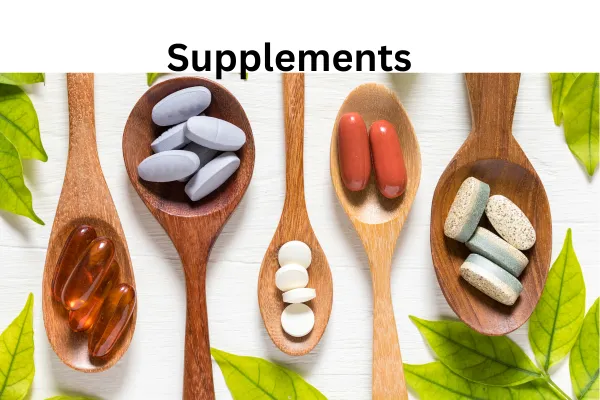
Supplements in Blood Sugar Management
Supplements in Blood Sugar Management
Managing blood sugar is a key part of diabetes care. While medications, diet, and exercise are essential, certain supplements may help support better blood sugar control. They’re not a replacement—but when used properly, they can complement your overall plan.
What Supplements Can Do
Supplements may help:
Improve how your body responds to insulin
Stabilize blood sugar after meals
Reduce chronic inflammation linked to diabetes
Support healthy metabolism
Reference: National Institutes of Health, Office of Dietary Supplements (2021)
Top Supplements for Blood Sugar Management
1. Chromium
Chromium is a mineral that helps insulin work better. Some studies show it may lower blood sugar in people with Type 2 diabetes.
Sources: Broccoli, whole grains, lean meat
Dosage: 200–1,000 mcg/day
Evidence: Anderson & Bryden (2004), Diabetes Care
2. Magnesium
Magnesium helps with over 300 body processes, including how cells use insulin. Low levels are common in people with diabetes.
Sources: Nuts, seeds, leafy greens, whole grains
Dosage: 250–400 mg/day
Evidence: Barbagallo & Dominguez (2010), World Journal of Diabetes
3. Alpha-Lipoic Acid (ALA)
ALA is a powerful antioxidant that helps with insulin sensitivity and may ease nerve pain from diabetes.
Sources: Spinach, broccoli, organ meats
Dosage: 300–600 mg/day
Evidence: Ziegler et al. (2004), Diabetes Care
4. Berberine
Berberine is a plant compound that may lower blood sugar and improve insulin function. It activates an enzyme (AMPK) that boosts metabolism.
Sources: Goldenseal, barberry, Oregon grape
Dosage: 500 mg, 2–3 times daily
Evidence: Yin et al. (2008), Metabolism
5. Vitamin D
Low vitamin D is linked to insulin resistance. Many people with diabetes are deficient.
Sources: Sunlight, fatty fish, fortified foods
Dosage: 1,000–2,000 IU/day
Evidence: Pittas et al. (2007), Diabetes Care
6. Cinnamon Extract
Cinnamon may help lower fasting blood sugar and improve how cells use glucose.
Sources: Cinnamon bark, ground spice, or extract
Dosage: 1–6 grams/day
Evidence: Khan et al. (2003), Diabetes Care
Special Considerations for Women Over 40
Hormonal shifts during menopause can worsen blood sugar control. Supplements can support this phase:
Magnesium + Vitamin D: Support bone health
ALA + Chromium: Help with insulin and hormone shifts
Ashwagandha (optional): May support stress relief and cortisol regulation
Reference: Mauvais-Jarvis (2015), Physiology & Behavior
Cautions When Using Supplements
Talk to your doctor first—especially if on medications
Stick to safe dosages—more isn’t better
Choose quality brands—look for third-party testing
Track your blood sugar—monitor how you respond
Reference: American Diabetes Association (2021), Standards of Care
Conclusion
Supplements can support blood sugar control—but they work best alongside food, movement, stress management, and medications. Women over 40 may benefit from certain nutrients to ease hormonal and metabolic shifts.
Always talk with your healthcare provider to make sure supplements are right for you.
References
NIH Office of Dietary Supplements (2021)
Anderson & Bryden (2004), Diabetes Care
Barbagallo & Dominguez (2010), World Journal of Diabetes
Ziegler et al. (2004), Diabetes Care
Yin et al. (2008), Metabolism
Pittas et al. (2007), Diabetes Care
Khan et al. (2003), Diabetes Care
Mauvais-Jarvis (2015), Physiology & Behavior
American Diabetes Association (2021), Standards of Medical Care in Diabetes
